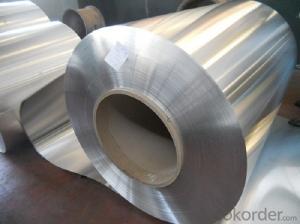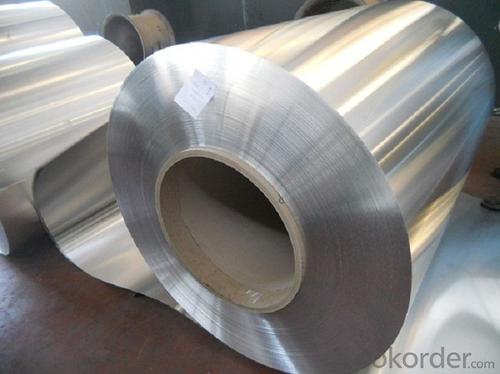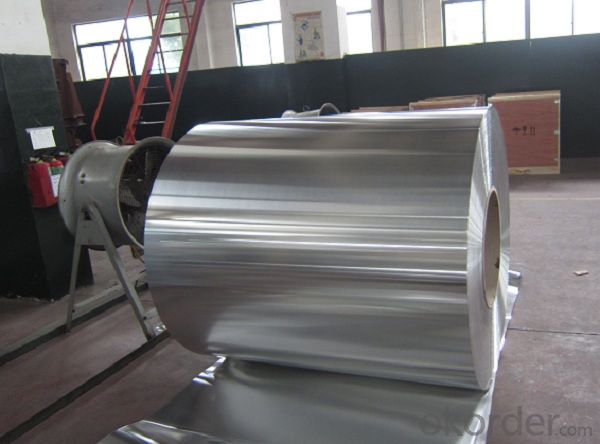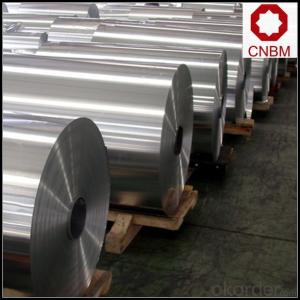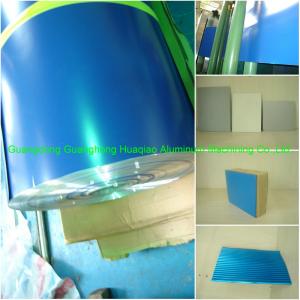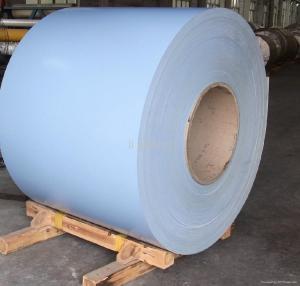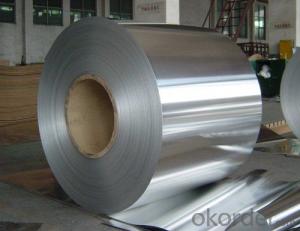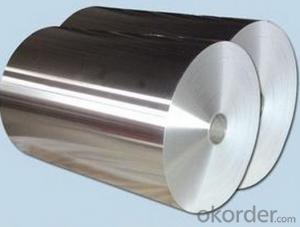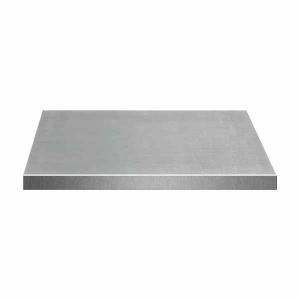6061-T6 Aluminum Coil for Wine/Medicine PP Cap
- Loading Port:
- Shanghai
- Payment Terms:
- TT OR LC
- Min Order Qty:
- 2.5
- Supply Capability:
- 5000 m.t./month
OKorder Service Pledge
OKorder Financial Service
You Might Also Like
Specification
8011 HO Aluminum Coil for Wine/ Medicine PP Cap
l Product Introduction
We offer 8011, 3105, 3003, 3005 HO, H14, H16, H18 aluminium coil for lids (caps) crystal segment is uniform, which makes its deep stamping property excellence. These products are widely used in Wine bottles, Pilfer-proof caps, ROPP cap, Pharmceutical cap, etc.
l Product Specification
1. Alloy: 8011, 3105, 3005, 3003
2. Temper: HO, H14, H24, H16, H26,H18
3. Pattern: rolled, degreased, pre-lubricated, pre-treated, lacquered
4. Thickness: 0.19-0.3 (0.23/0.22/0.27) mm
5. Width: 500-1200 (829/880/1085) mm
6. Length: as requirement, or in coil
7. Coil ID: 75, 150, 300, 500, etc
8. Payment Terms: 30% by TT in advance as deposit and the rest payment upon delivery or irrevocable, confirmed L/C at sight;
9. Lead Time: about 15~30 days after deposit
l Packaging & Delivery
Packaging detail: Seaworthy Export Standard Wooden Pallet and with damp proof film as first layer, Kraft paper as second layer, Cardboard card as third layer Criss-cross steel strip to fix outside
Delivery detail: About 25 days
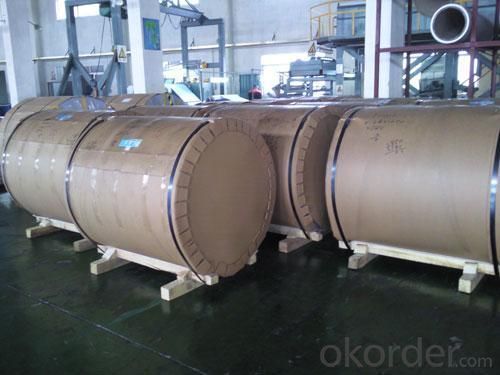
l Company Profile
CNBM International Corporation, China National Building Materials (Group) Corporation, is one of the largest companies in China building material & equipment industry, with 42,800 employees and sales in 2005 of US Dollar 4.395 billion. In 2006, China National Building Material Company Limited was listed on Hong Kong Stock Market with the stock code as 3323. |
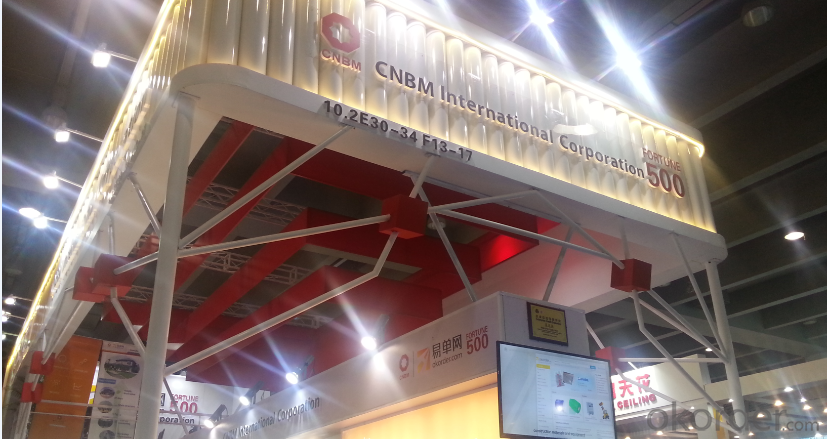
l CNBM World Wide
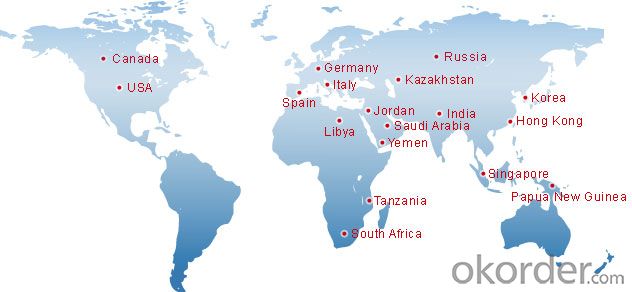
l Products Images
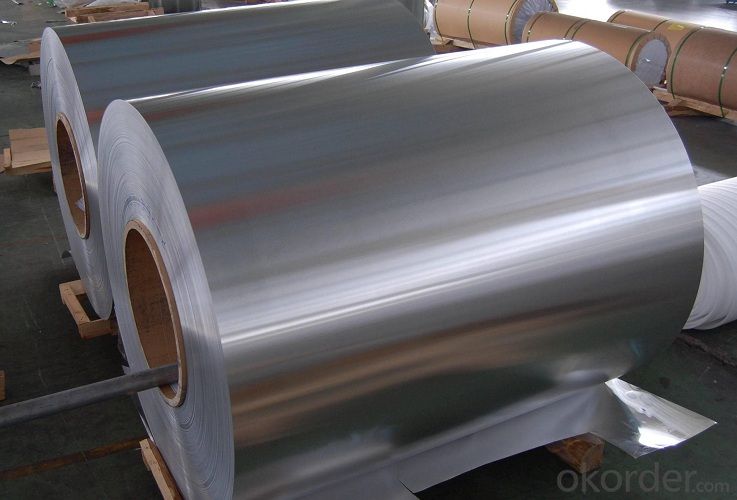
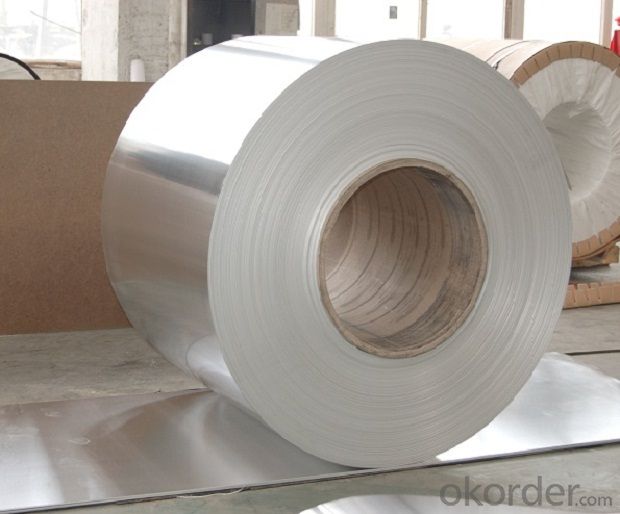
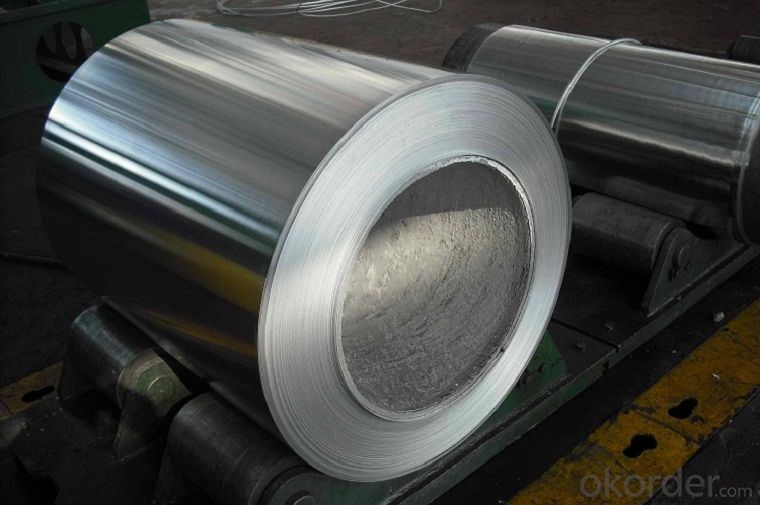
l Certificates
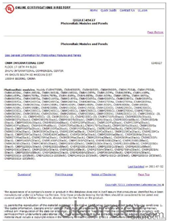
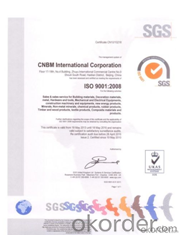
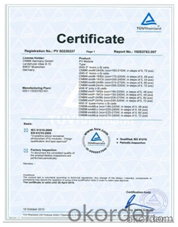
l FAQ
Q: Do you provide free samples?
A: Yes, free samples will be sent to you on freight at destination.
Q: Can I get your latest products catalogue?
A: Yes, it will be sent to you in no time.
Q: What is the MOQ?
A: 2.5 tons
Q: What are your payment terms?
A: We accept L/C, T/T
- Q: Is it possible to use a magnet to determine if an aluminum coil has magnetic properties?
- <p>No, you cannot use a magnet to test the magnetic properties of an aluminum coil. Aluminum is a non-magnetic material, meaning it does not have magnetic properties and will not be attracted to a magnet. Magnets are used to test ferromagnetic materials like iron, nickel, and cobalt. To test for magnetic properties, you would need to use a different method, such as an electromagnetic induction test, which can detect magnetic fields generated by electrical currents in a coil.</p>
- Q: Explain the distinctions among various welding equipment used specifically for joining aluminum coils.
- <p>Different types of welding equipment for aluminum coils include Gas Tungsten Arc Welding (GTAW), Gas Metal Arc Welding (GMAW), and Resistance Welding (RW). GTAW, also known as TIG welding, uses a non-consumable tungsten electrode and produces high-quality welds with minimal distortion. GMAW, or MIG welding, uses a continuous wire feed as the electrode and is faster but may not be as precise. Resistance Welding involves using electrical current to heat the metals at the joint, which is quick and efficient but not suitable for all aluminum alloys. Each method has its advantages and is chosen based on factors like weld quality, speed, and the specific aluminum alloy being welded.</p>
- Q: What are the potential applications of coil-painted aluminum coils?
- Coil-painted aluminum coils have a wide range of potential applications. They can be used in various industries such as construction, automotive, and electronics. In construction, they can be used for roofing, wall cladding, and insulation purposes due to their durability, corrosion resistance, and aesthetic appeal. In the automotive industry, coil-painted aluminum coils can be utilized for manufacturing car bodies, interior trim, and decorative elements. Additionally, these coils can be employed in the electronics sector for producing casings, heat sinks, and other components. Overall, the versatility and unique properties of coil-painted aluminum coils make them suitable for diverse applications across different sectors.
- Q: How do aluminum coils contribute to the energy efficiency of products?
- Aluminum coils contribute to the energy efficiency of products by providing excellent heat transfer properties. Their high thermal conductivity allows for efficient heat exchange, helping to cool or heat products more quickly and effectively. Additionally, aluminum coils are lightweight, which reduces the energy required for transportation and installation. The durability and corrosion resistance of aluminum also contribute to the longevity of products, reducing the need for frequent repairs or replacements, further enhancing energy efficiency.
- Q: Yep a slogan...the element Aluminum
- Aluminium - Wrap **** in it
- Q: How do aluminum coils compare to plastic coils in terms of durability?
- Aluminum coils are generally more durable than plastic coils. They are resistant to corrosion and can withstand high temperatures, making them suitable for various applications. Plastic coils, on the other hand, are more prone to wear and tear, especially in harsh environments or with heavy usage. While both types have their own advantages, aluminum coils are generally considered to be more durable in the long run.
- Q: Are aluminum coils suitable for solar panel applications?
- Yes, aluminum coils are suitable for solar panel applications. Aluminum is a lightweight and highly conductive material that has several advantages for solar panels. Firstly, aluminum coils can effectively transfer and dissipate heat, which is crucial for maintaining the efficiency and lifespan of solar panels. Aluminum's excellent thermal conductivity helps in reducing the temperature of the solar cells, preventing overheating and potential damage. Secondly, aluminum coils are highly resistant to corrosion, making them an ideal choice for outdoor solar panel installations. Solar panels are exposed to various weather conditions, including rain, snow, and humidity, which can lead to corrosion and degradation. Aluminum's natural oxide layer acts as a protective barrier, preventing corrosion and increasing the durability of the solar panels. Additionally, aluminum is a cost-effective material that is widely available and easy to manufacture. Its lightweight nature also contributes to easier transportation and installation of solar panels, reducing overall costs. In conclusion, aluminum coils are suitable for solar panel applications due to their excellent thermal conductivity, corrosion resistance, durability, and cost-effectiveness.
- Q: How are aluminum coils protected from corrosion?
- Aluminum coils are protected from corrosion through various methods and coatings. One common method is anodizing, which involves immersing the coils in an electrolyte solution and passing an electric current through them. This process forms a thick oxide layer on the surface of the aluminum, providing excellent corrosion resistance. Another method is the application of a protective coating. Aluminum coils can be coated with organic or inorganic coatings, such as polyester, epoxy, or polyvinylidene fluoride (PVDF). These coatings act as a barrier, preventing moisture and corrosive substances from reaching the aluminum surface. Additionally, aluminum coils can be protected through the use of sacrificial coatings. This involves applying a layer of a more reactive metal, such as zinc or magnesium, onto the aluminum surface. These sacrificial coatings corrode before the aluminum does, effectively protecting it from corrosive elements. Regular cleaning and maintenance also play a crucial role in preventing corrosion. Accumulated dirt, debris, and corrosive substances should be regularly removed from the surface of the coils to maintain their corrosion resistance. Overall, a combination of anodizing, protective coatings, sacrificial coatings, and proper maintenance ensures that aluminum coils are effectively protected from corrosion, extending their lifespan and maintaining their performance.
- Q: Describe the different methods used to produce aluminum coils.
- <p>Aluminum coil is produced through several methods, primarily involving the process of rolling. The main methods include: 1) Hot rolling, where aluminum slabs are heated and rolled into coils at high temperatures. 2) Cold rolling, which involves rolling aluminum at room temperature to achieve thinner gauges with higher precision. 3) Continuous casting and rolling, a process where aluminum is cast and rolled in one continuous operation, optimizing production efficiency. 4) Twin-roll casting, a method where molten aluminum is cast directly between two counter-rotating rolls, forming a thin strip that can be coiled immediately. Each method has its advantages and is chosen based on the desired coil properties, thickness, and application.</p>
- Q: What are the common fabrication techniques used for aluminum coils?
- Aluminum coils undergo various fabrication techniques to achieve desired properties. Rolling, annealing, slitting, and coating are commonly employed. Rolling, a primary technique, reduces thickness and shapes aluminum by passing it through rollers. Hot rolling, with high temperatures, makes the metal more malleable, while cold rolling is done at room temperature. Annealing, another important technique, enhances mechanical properties by heating and slowly cooling the aluminum. It relieves stresses, improves formability, and strengthens the metal. Slitting cuts wide coils into narrower strips, providing customization options. Specialized machines are used for precise width adjustments. Coating, a common technique, improves durability, corrosion resistance, and appearance. Paint, anodizing, or powder coating methods create protective layers, preventing oxidation and enhancing weather resistance and aesthetics. These techniques are widely used in the aluminum industry, producing high-quality coils for construction, automotive, aerospace, electrical, and other industries.
Send your message to us
6061-T6 Aluminum Coil for Wine/Medicine PP Cap
- Loading Port:
- Shanghai
- Payment Terms:
- TT OR LC
- Min Order Qty:
- 2.5
- Supply Capability:
- 5000 m.t./month
OKorder Service Pledge
OKorder Financial Service
Similar products
Hot products
Hot Searches
Related keywords
